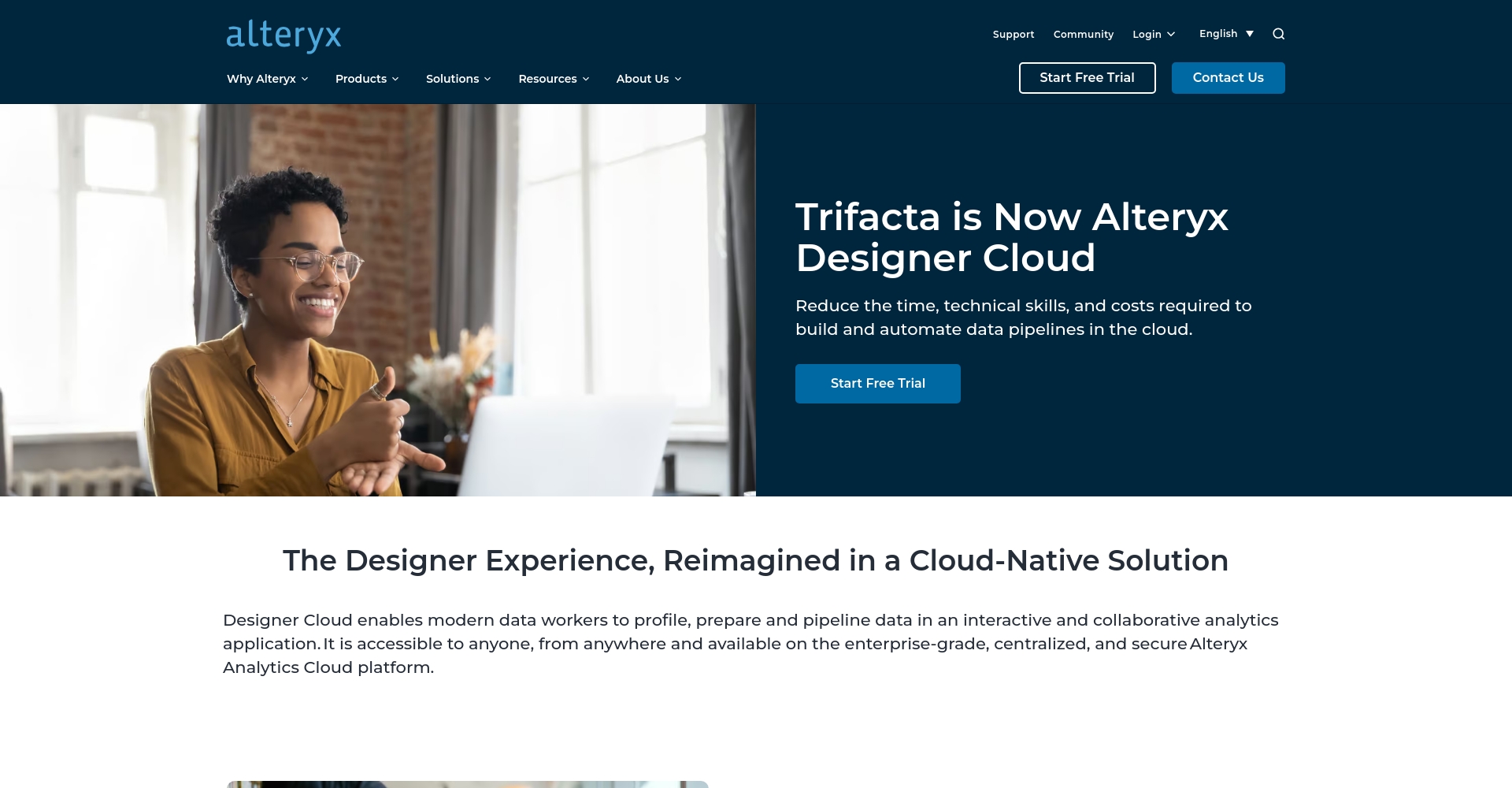Alteryx's acquisition of Trifacta marks a significant step in the data analytics industry. By integrating Trifacta's cloud-native data engineering capabilities, Alteryx aims to enhance its low-code/no-code analytics platform. This strategic move is expected to provide enterprise customers with scalable, flexible deployment options across major cloud providers, thereby accelerating Alteryx's cloud journey and expanding its market reach.

Founded in 2012, Trifacta, now rebranded as Alteryx Designer Cloud, specializes in cloud-native solutions for data profiling, preparation, and pipelining. Its core products include Designer Cloud, which offers an interactive and collaborative environment for modern data workers. Unique selling points include ease of use with drag-and-drop interfaces, real-time previews, and the ability to build and manage data pipelines quickly. The platform also emphasizes enterprise-grade security and comprehensive analytics capabilities.
Alteryx is a prominent player in the analytics industry, offering an AI-driven platform designed to simplify, automate, and accelerate data analytics tasks. Key products include the Alteryx AI Platform for Enterprise Analytics, Designer Cloud, and Auto Insights, among others. Alteryx is recognized for making analytics accessible to business users of all technical levels, improving efficiencies, reducing costs, and mitigating risks for organizations worldwide. The company is acknowledged by industry experts as a leader in the field.
Alteryx announced its acquisition of Trifacta on January 6, 2022, and completed the transaction on February 7, 2022. This acquisition aligns with the growing industry trend towards cloud-native solutions and the increasing demand for scalable, secure data analytics platforms. By integrating Trifacta's cloud capabilities, Alteryx aims to enhance its low-code/no-code analytics offerings, catering to both IT and business teams. This move is part of a broader strategy to accelerate Alteryx's cloud transformation and expand its market reach.
The acquisition of Trifacta by Alteryx has led to significant changes in operations and management. Alteryx has integrated Trifacta's technology, go-to-market operations, and personnel into its existing business structure. This integration aims to enhance Alteryx's cloud-native capabilities, providing flexible deployment options for its analytics platform. The acquisition also doubled the size of Alteryx’s cloud engineering team, reflecting a substantial investment in cloud-based solutions. The Product and Engineering teams from both companies are now working on a combined roadmap to deliver an integrated platform that meets the diverse needs of enterprise customers.
In terms of product offerings, Trifacta's cloud-native capabilities will become the modern backend for Alteryx's solutions, enhancing data preparation, data quality, and ETL/ELT processes. This integration will offer flexible deployment options across major cloud providers like AWS, Azure, and GCP. While Trifacta’s products will initially be sold separately, the long-term plan is to create a unified platform that supports both IT and business teams. Employee reactions have been generally positive, with retention incentives in place to ensure key staff remain. Customers can expect continued support and an enhanced product experience, with added value from the combined capabilities.
For founders considering business transitions, tools like Sunset can assist in managing such processes compliantly, ensuring a smooth and efficient transition.